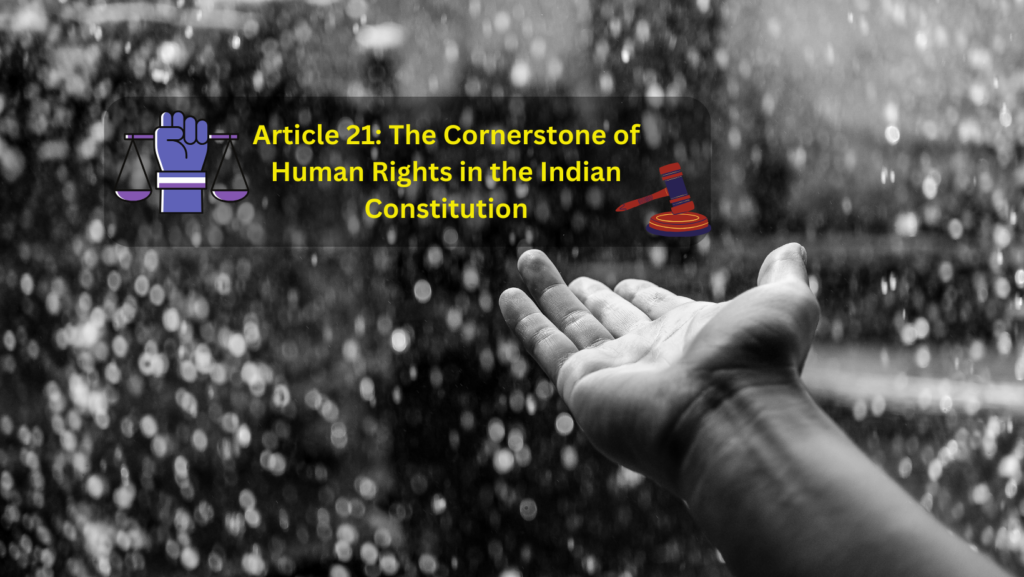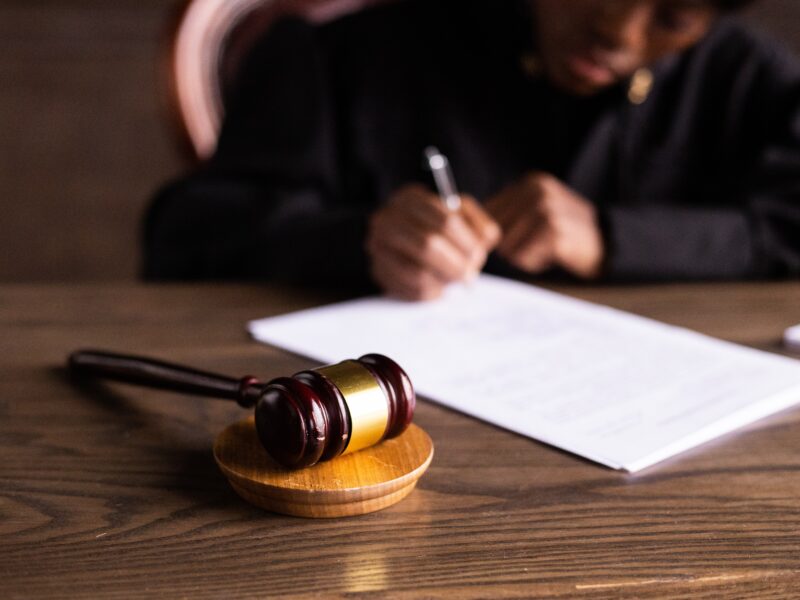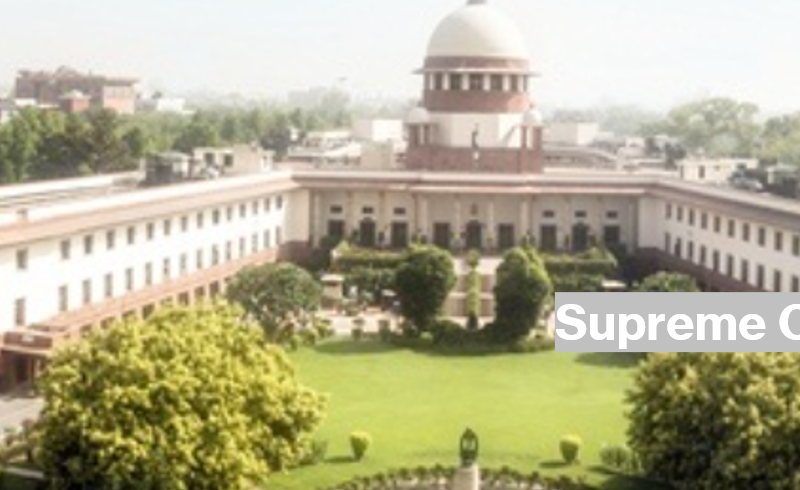Introduction
Human rights are a cornerstone of Article 21 of the Indian Constitution, which is frequently referred to as the “heart and soul” of the document. It states that “No person shall be deprived of his life or personal liberty except according to the procedure established by law.” With this clause, not only is the right to life protected, but also the right to one’s own personhood, guaranteeing that each person has at least a minimal amount of freedom and dignity. We will examine the meaning, development, and current applicability of Article 21 in the context of India’s constitutional structure in this article.

Historical Background
The Universal Declaration of Human Rights, which was ratified by the UN General Assembly in 1948, serves as the foundation for Article 21. The preservation of fundamental rights, such as the right to life and liberty, for all people worldwide was established by this international agreement. In the years following its independence, India integrated these values into its Constitution, reaffirming the nation’s dedication to safeguarding the dignity and rights of its people.
Value of the Right to Life
Article 21’s protection of the right to life goes beyond the mere maintenance of physical existence. It includes things like the right to a healthy body, a clean environment, an adequate standard of living, and education. It extends to a life with dignity. According to the landmark ruling in Aruna Shanbaug v. Union of India, courts in India have repeatedly construed the right to life liberally, acknowledging that it encompasses the right to a livelihood, to privacy, and even the right to pass away with dignity.
A Defence Against Arbitrary State Action Is Personal Liberty
Another fundamental component of Article 21 is personal liberty, which serves as a check against arbitrary state action. It makes sure that people are safeguarded from wrongful detention, arrest, and infringement of their personal freedoms. This privilege has been crucial in limiting presidential overreach and advancing the rule of law. Since the concept of due process has developed over time, the state is now required to follow fair and just procedures before robbing someone of their freedom.
Important Judgements Related To Article 21 of Indian Constitution
The right to life and personal liberty is guaranteed under Article 21 of the Indian Constitution, which has been the focus of a number of significant rulings by the Indian judiciary.Here are some of the historic judgments related to Article 21
- A.K. Gopalan v. State of Madras (1950): This case was the first significant interpretation of Article 21. The Supreme Court held that the protection of Article 21 is limited to protection against executive actions and does not extend to the legislative action. This ruling was later overruled by subsequent judgments.
- Maneka Gandhi v. Union of India (1978): This case marked a turning point in the interpretation of Article 21. The Supreme Court expanded the scope of the right to life and personal liberty by emphasizing that these rights must be reasonable and fair. The court held that the procedure established by law must be just, fair, and not arbitrary.
- Sunil Batra v. Delhi Administration (1978): In this case, the Supreme Court held that the right to life includes the right to live with human dignity. It recognized that the right to life is not limited to mere physical existence but includes the right to a decent and humane life.
- Francis Coralie Mullin v. Administrator, Union Territory of Delhi (1981): This case emphasized the significance of the right to life and personal liberty and held that it encompasses various aspects such as the right to privacy and protection from torture and cruel, inhuman, or degrading treatment.
- Olga Tellis v. Bombay Municipal Corporation (1985): In this judgment, the Supreme Court affirmed that the right to livelihood is an integral part of the right to life and personal liberty, recognizing the importance of socioeconomic rights in Article 21.
The Evolving Landscape of Article 21
Over the years, Article 21 has evolved to meet the changing needs of society. It has been interpreted in a manner that aligns with contemporary challenges, ensuring that it remains relevant. For instance, in the digital age, the right to privacy has gained paramount importance, with the Supreme Court of India recognizing it as an intrinsic part of Article 21 in the landmark Puttaswamy judgment.
Challenges and Controversies
While Article 21 is a cornerstone of human rights in India, it has not been without controversies and challenges. Issues such as custodial violence, overcrowded prisons, and delayed justice continue to plague the criminal justice system. The Supreme Court and other judicial bodies have consistently addressed these issues, emphasizing the need for criminal justice reform.
Conclusion
India’s dedication to safeguarding the dignity and rights of its residents is demonstrated by Article 21 of the Indian Constitution, which places a strong focus on the rights to life and personal liberty. It has been crucial in determining the country’s legal system, safeguarding people against arbitrary government actions and upholding their right to a life of dignity. Article 21 will change together with India as it develops, evolving to meet the ever-changing demands of its people while staying a testament to justice and hope for all.

